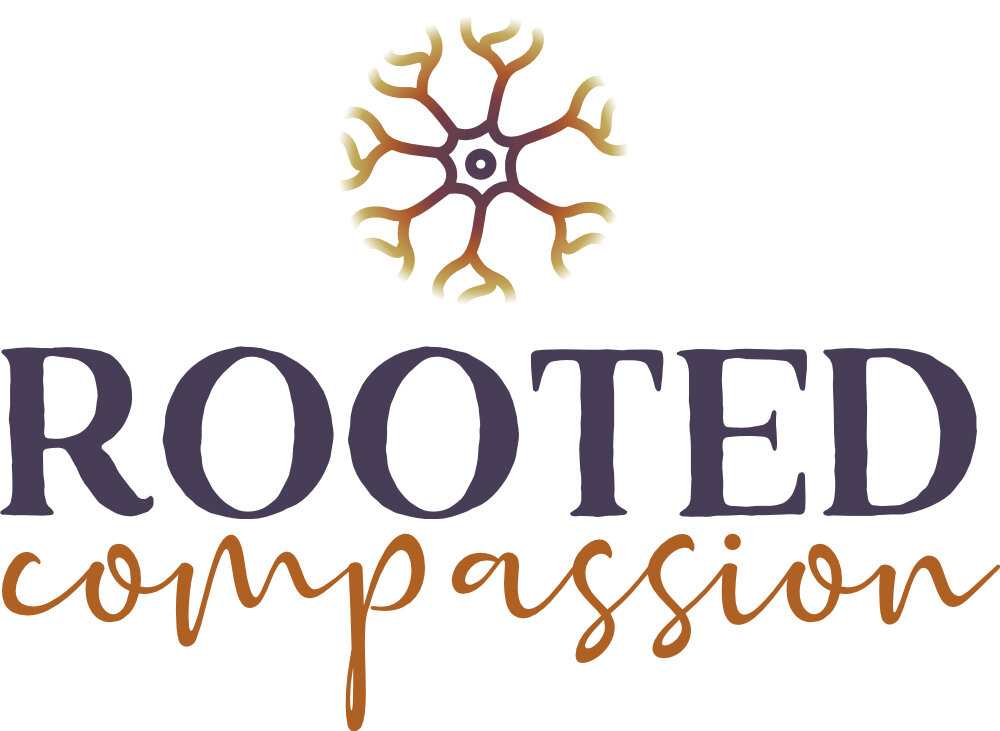Embracing Suffering by Attending to the Nervous System
I’m typically reading many books at once. My approach to reading seems to mirror my winding and curious train of thought. This sometimes involves perusing, skimming, studying, (sometimes skipping) and almost always includes keeping an eye out for what I would dub a random “nugget” of connection, inspiration, or truth. A lopsided stack of books usually accumulates on the nightstand, and occasionally one will find its way into my car or briefcase in case I come upon an occasion to share it.
Recently, the book, No Mud, No Lotus by Thich Nhat Hanh, revealed such a nugget and found its way to my briefcase.
In this book, Thich Nhat Hanh talks about how we might embrace suffering. He offers the metaphor of mindfulness as a mother who attends to a crying child:
“If we let the suffering come up and just take over our mind, we can be quickly overwhelmed by it. So we have to invite another energy to come up at the same time, the energy of mindfulness. The function of mindfulness is, first, to recognize the suffering and then to take care of the suffering. The work of mindfulness is first to recognize the suffering and second to embrace it. A mother taking care of a crying baby naturally will take the child into her arms without suppressing, judging it, or ignoring the crying. Mindfulness is like that mother, recognizing and embracing suffering without judgment.
So the practice is not to fight or suppress the feeling, but rather to cradle it with a lot of tenderness. When a mother embraces her child, that energy of tenderness begins to penetrate into the body of the child. Even if the mother doesn’t understand at first why the child is suffering and she needs some time to find out what the difficulty is, just her act of taking the child into her arms with tenderness can already bring relief. If we can recognize and cradle the suffering while we breathe mindfully, there is relief already.” (Hanh, 2014, p. 26-27)
Mother’s Day was approaching, so I was thinking about mothers when this passage caught my attention.
As I reread it with my newly-developing Polyvagal Theory lens, I thought about how the metaphor provides a universal message of how we might responsibly “mother” or support our own nervous system.
The nervous system detects stimuli through neuroception, which Dana (2020) describes as “detection without awareness” (p. 2). The body response to negative stimuli or stressors might then show up as tension in the body, a feeling of breathlessness, or an increased heart rate, for example. When we practice mindfulness, we add in awareness by using attention and focus to simply observe what we are feeling and sensing in the moment. This pause allows us to notice our nervous system response with acceptance and non-judgment. It creates a safe space for intention, a buffer against the urgency of uncertainty or fearful thought.
Instead of doubting, suppressing, or fighting what we feel, we’re able to choose to attend to our uncomfortable nervous system response--maybe with a calming breath, a shift to a more supportive body position, or by simply placing a hand over our heart.
In this way, mindfulness allows us to come from a place of greater calm and relief and provides the essential clarity of mind we need while we move forward with solving our difficulties.
REFERENCES:
Hanh, T. N. (2014). No Mud, No Lotus. Parallax Press
Dana, D. (2020). Polyvagal Exercises for Safety and Connection. W.W. Norton & Company, Inc.
PHOTOS:
Woman Holding Baby: Photo by Gift Habeshaw on Unsplash
Man Holding Child: Photo by Kelly Sikkema on Unsplash
Woman Meditating: Photo by Le Minh Phuong on Unsplash
Julie Koloc, MA, LPC, is one of our incredible counselors here at Rooted Compassion Counseling and Consulting. She specializes in Emotional Freedom Techniques (EFT), Trauma Responsive Care (TRC) Techniques, and Cognitive Behavioral Theory (CBT).
The Rooted Compassion team is made up of a group of counselors who have a variety of specialties in order to best serve our clients. We recognize that every person has his/her own personal and unique life experiences and that one modality will not work for every client. Listed below is a summary of our counselors’ specialties at Rooted Compassion:
Emotional Freedom Techniques
Grief Counseling
Somatic Focused Counseling
EMDR
Cognitive Behavioral Therapy
Dialectical Behavior Therapy
Mindfulness-Based Practices
Trauma Responsive Care Techniques
Acceptance and Commitment Therapy
Motivational Interviewing
Gottman Couples Counseling
If you are interested in learning more about what Rooted Compassion is all about, please contact us today, look through our website, or find us on Instagram and Facebook.
Rooted Compassion Counseling is Ohio’s leading practice for trauma therapy through the lens of the nervous system. Our focus is to walk alongside clients as they heal from depression, anxiety, trauma, grief and/or loss. If you or someone you know are seeking to explore and build an inner sense of calm and safety, please contact us today. We would love to help you to find a counselor and counseling techniques that will guide you on your mental health journey to healing.




